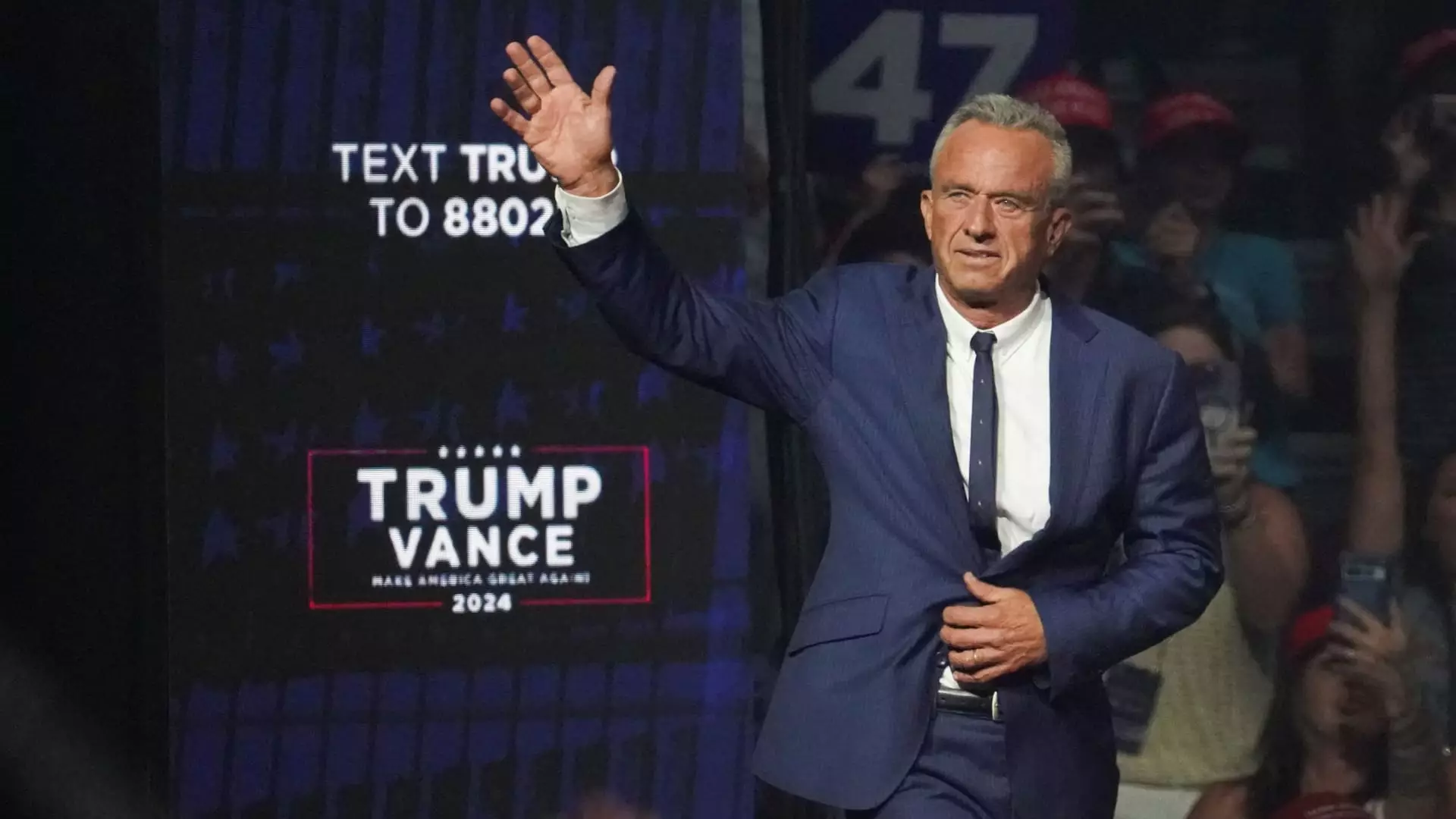In August 2023, Robert F. Kennedy Jr. made waves when he decided to abandon his independent candidacy for the presidency and extend his support to former President Donald Trump. This pivotal moment was framed as a strategy to enhance Trump’s chances in crucial battleground states, a move portrayed as both calculated and beneficial. Kennedy’s announcement on August 23 outlined his plan: he would withdraw his candidacy from listings in swing states to increase the likelihood of a direct confrontation between Trump and Vice President Kamala Harris. In a rather revealing statement, Kennedy articulated that his presence on the ballot would likely facilitate a Democratic victory.
However, what seemed to be a well-thought-out electoral maneuver has devolved into a series of unforeseen complications that cloud its effectiveness. By pulling out, Kennedy aimed to consolidate anti-Democratic votes, but instead, he found himself still listed on ballots in key states such as North Carolina, Wisconsin, and Michigan. Given the intricate landscape of American electoral politics, these missteps have complicated the dynamics of the Trump campaign, making it difficult to ascertain any electoral gain derived from Kennedy’s shift in allegiance.
The legal framework surrounding candidacies adds layers of complexity to Kennedy’s exit strategy. In Michigan, for instance, a judge determined that Kennedy could not legally remove himself from the ballot, reflecting the unforgiving nature of electoral regulations governing minor-party candidates. Similarly, both Wisconsin and North Carolina’s elections commissions have opted to retain Kennedy’s candidacy on their ballots. Rather than facilitating a more streamlined choice for voters, these obstacles highlight the difficulties that independent candidates face in maneuvering within a system stacked in favor of the two-party paradigm.
As Trump aimed to capitalize on Kennedy’s endorsement to energize his base, the reality of Kennedy’s continued ballot presence complicates that effort. While Kennedy’s exit was supposed to invigorate Trump’s campaign in battleground states, it instead appears to dilute the hoped-for impact. The states at play—Michigan, North Carolina, and Wisconsin—are critical for Trump’s electoral math, particularly as polling indicates that he would perform better in a two-candidate race against Harris. Nevertheless, the ongoing presence of Kennedy on election ballots in these states could stifle the desired consolidation of Republican support.
Polling data, an essential barometer for any electoral strategy, reveals a multifaceted scenario that Trump and Kennedy must navigate. In states like Arizona and Pennsylvania, Kennedy’s withdrawal does present an opportunity for Trump by potentially consolidating votes against Harris. However, in other battlegrounds such as Nevada and Georgia, data suggests that dropping Kennedy from the race could indeed backfire, resulting in a narrower margin of support for Trump when he faces off against Harris in a one-on-one contest.
The dichotomy of voter preference dynamics places both Trump and Kennedy in a precarious position as they attempt to navigate the labyrinth of American electoral behavior. Kennedy had initially attracted a demographic of disillusioned voters tired of the traditional party offerings. As Trump seeks to harness this segment’s energy while also courting mainstream Republican voters, the conflict appears, suggesting that Trump may face an uphill battle in reconciling these disparate factions.
Despite facing significant hurdles, Kennedy’s endorsement may still offer potential advantages for Trump. The former president hopes to leverage Kennedy’s appeal among undecided voters as a way to broaden his electoral map beyond staunchly Republican territories. However, the effectiveness of this strategy remains to be seen given Kennedy’s inability to fully extricate himself from significant battleground ballots.
As the election approaches, both Trump and Kennedy must reassess their strategies with mere weeks left before voters head to the polls. The landscape is rife with contradictions and challenges that threaten to unravel what was initially seen as a strengthening alliance. With polling leading up to the election showing Harris with a slight edge over Trump, the urgency for a coherent strategy has never been more pressing. As Election Day draws near, Kennedy’s unresolved ballot status encapsulates the intricate and often perplexing nature of modern American electoral politics.


Leave a Reply